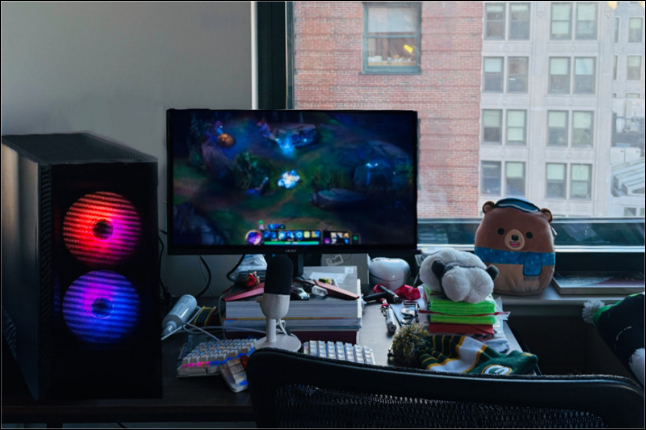
You should send money. I know most people don’t like sending money to random, unvetted recipients. But here’s why you should do that now.
All over Minneapolis there are neighboorhood groups on the ground helping people who have gone into hiding because of ICE. Hiding is isolating and scary. They cannot go to their jobs, they can’t take their kids to school, they can’t access their community support system. Read more

Book illustration by Yaacov Epter 1922
The subreddits for personality type torture me because people who misstype themselves are always the loudest – probably because misstyping ourselves is not a faulty attempt at a test but rather a faulty attempt at wish fulfillment. Read more

Before everyone’s home for winter break, I rearrange things to feel like there’s enough room. Picture: my two kids plus one kid’s boyfriend, and me, and most nights Nino, in an apartment that’s 1,000 square feet. Of course, there isn’t enough room. But after years of very small apartments, some things are normal for us: beds doubling as sofas, dinners on top of unfinished puzzles, cafés as a source of solitude. Read more
TechCrunch published a list of 30 women disrupting tech in 2011, and I was on the list. Since then I’ve tracked how the women manage kids. Almost all the women were childless at the time, but enough years have passed that we can see what happened next.
The women fall into four categories: Read more

Ceramic plate by Keaton Henson
In the past few days hundreds of you have given me feedback on my post about Rob Reiner. I’ve learned a lot from the comments section. This post organizes ideas that have come up in discussion.
The day after Rob Reiner was killed by his son, Nick Reiner, a New York Times podcast revisited Rob’s relationship with his own father. Rob had said that even as a young child, he felt his father hated him. When Rob’s brother died, Rob believed his father wished Rob had died instead. Years later, Rob admitted he had not bonded with his own son, Nick, when Nick was young.
Failure to bond with a child is abuse
When there’s shocking gun violence, the media takes an opportunity to debate the balance between the right to bear arms and the right to feel safe. But when there’s shocking family violence, we refuse to talk about the balance between the rights of parents and the rights of children. Read more

South Park episode “Butt Out” which makes fun of Rob Reiner’s self-delusion.
Rob Reiner is a famous director and he’s dead. You probably knew him from his movies This is Spinal Tap and When Harry Met Sally. Now you’ll know him because his son, Nick Reiner, killed his parents by slitting their throats.
The past two days have been filled with celebrations of the great Rob Reiner which seem completely tone deaf to me. Rob’s first job was to be a good parent to his son and he was a bad parent. Read more
This post is the third in a series. Here are the first and second posts. I’ll be talking about these posts and answering your questions live on Monday at 5pm Eastern. Become a paid Substack member to receive a link to the session.
I get off the plane in Charlotte and all my money’s gone. I think: How will I get home once I land in Boston? But then I remember the last time the money was gone my kids showed me you can sneak on the train without paying.
So I call the Wisconsin Department of Revenue to see if they are the ones who took my money. I say a little prayer about being able to get my money back: Please god make it the DOR and not the oil guy who sued me. Read more

My oldest kid wrote this five years ago for the college application essay. It didn’t work for a college essay. But I was so glad to read it. If you haven’t read my first post on multiple personality disorder, you can read it here. I will answer any questions you have on this topic on Monday, Nov. 24 at 5pm Eastern. Zoom link forthcoming.
On my sixteenth birthday, my mother told me she has dissociative identity disorder. It means that she has multiple identities – alters – that’s what people with DID call them. She’s had it my whole life. DID only occurs when a person experiences such terrible trauma as a child that they create another person in order to hide from what is happening to them. Read more

photo by Joshua Sariñana
I have multiple personality disorder
I’ve actually known this since 2013 when a psychiatrist at Northwestern University told me.
At the time I told myself it’s a misdiagnosis and I have autism. I told myself mental health professionals are so stupid and they are always misdiagnosing everyone and I have to figure out everything myself. I spent the next decade figuring out everything about autism.
I figured out my whole family has autism. I put myself and my kids on medicine for ADHD. I turned my career into identifying autism and being frustrated that people didn’t believe me when I told them. They’d say, “How do you know?”
I’d be incredulous: “I’VE BEEN DOING THIS FOR YEARS. IT’S SO EASY FOR ME TO SEE!” Read more

Screenshot from Ray Dalio’s video on economics
I tutor Art History Girl for six hours a day. It’s a lot of alone time to give up, but empty-nesting in my apartment took a turn for the worst when I agreed that for the last year of school Y could move back to my apartment with the boyfriend.
This year we’re doing AP World History.
During the unit about capitalism we watched cartoon videos that billionaire hedge-funder Ray Dalio made for members of Congress to learn how the economy works. In the videos everyone charges everyone money (“That’s the whole economy! It’s that simple!”) and it nagged at me that the boyfriend is not paying rent. Read more


